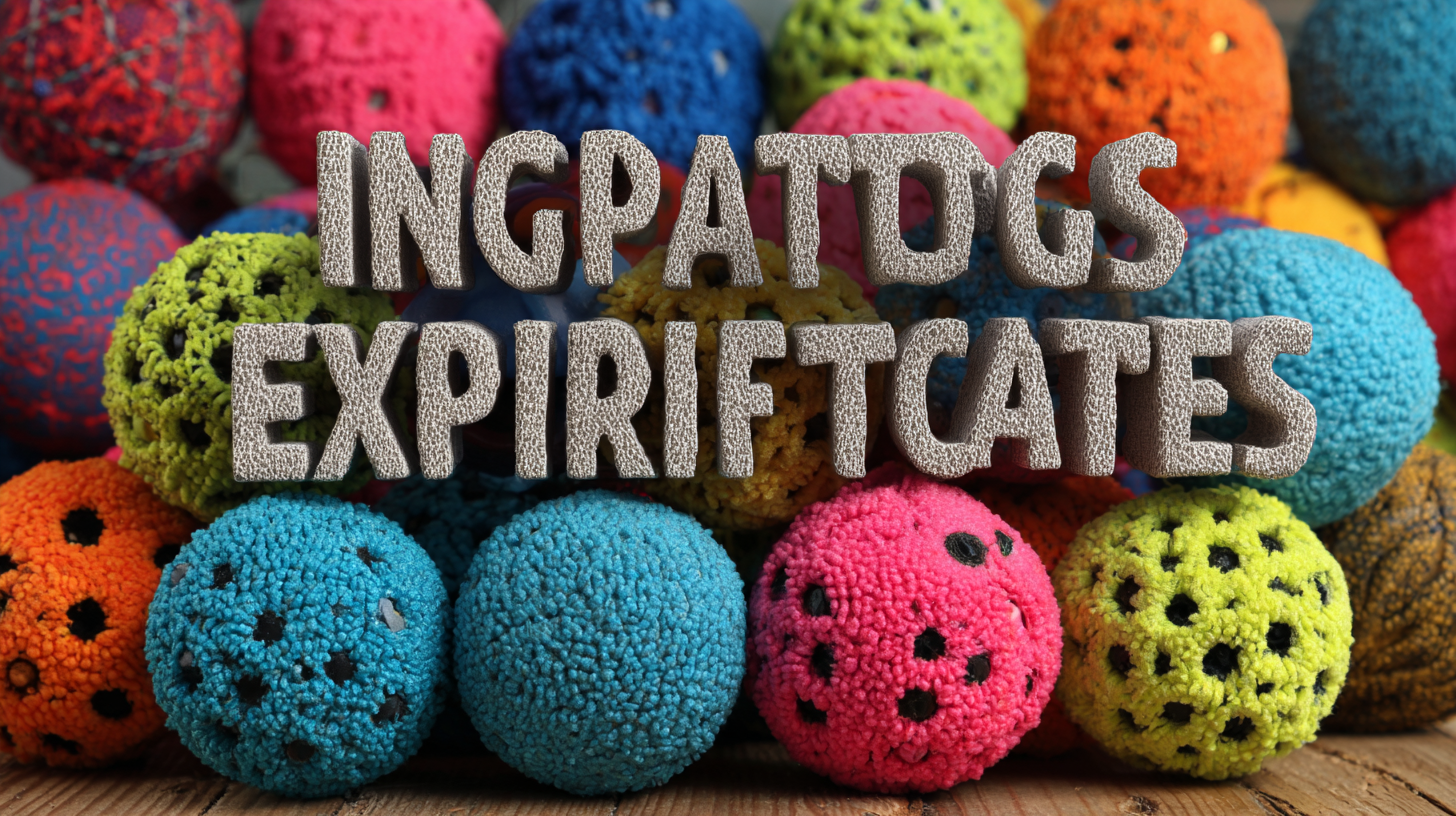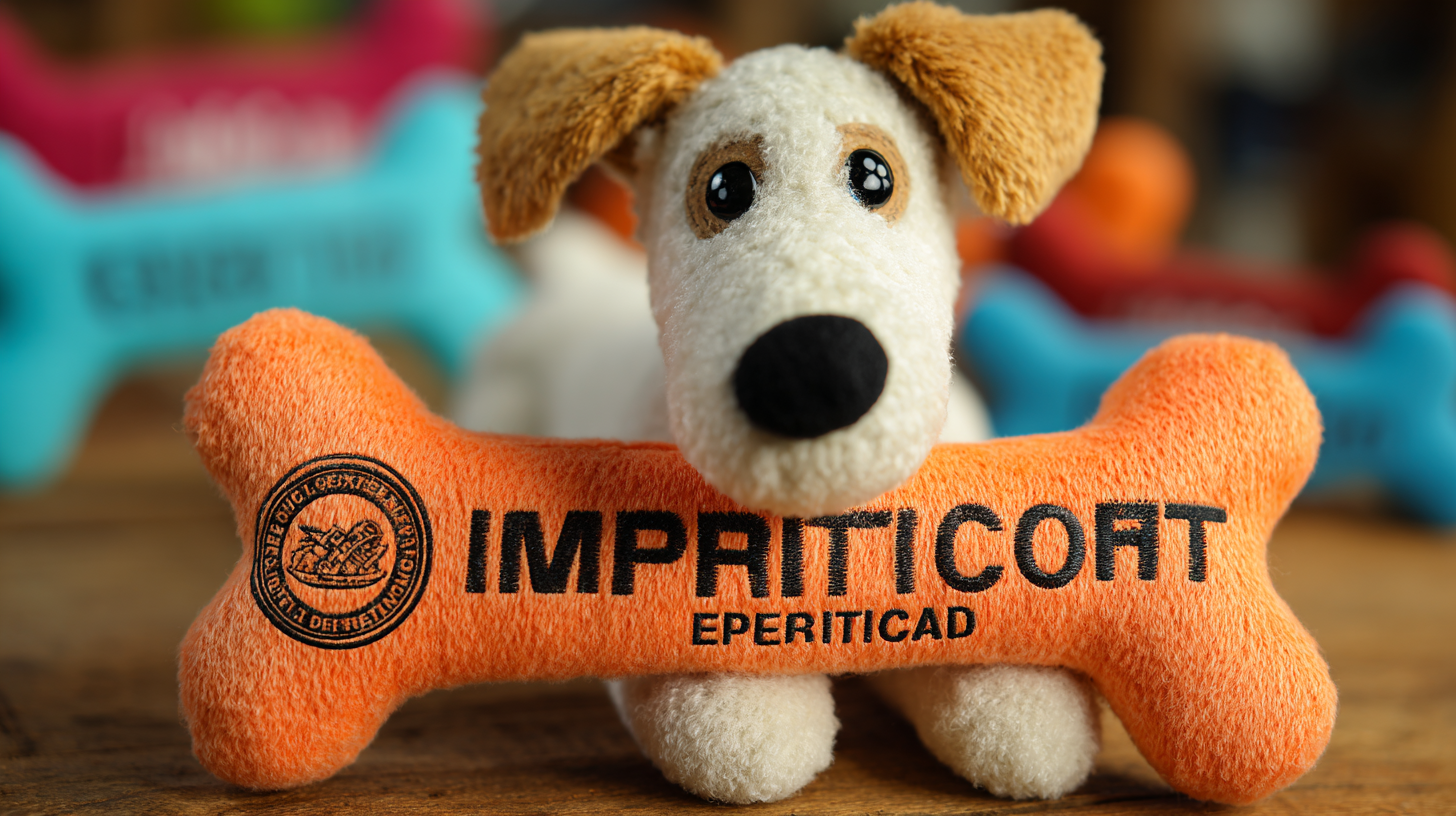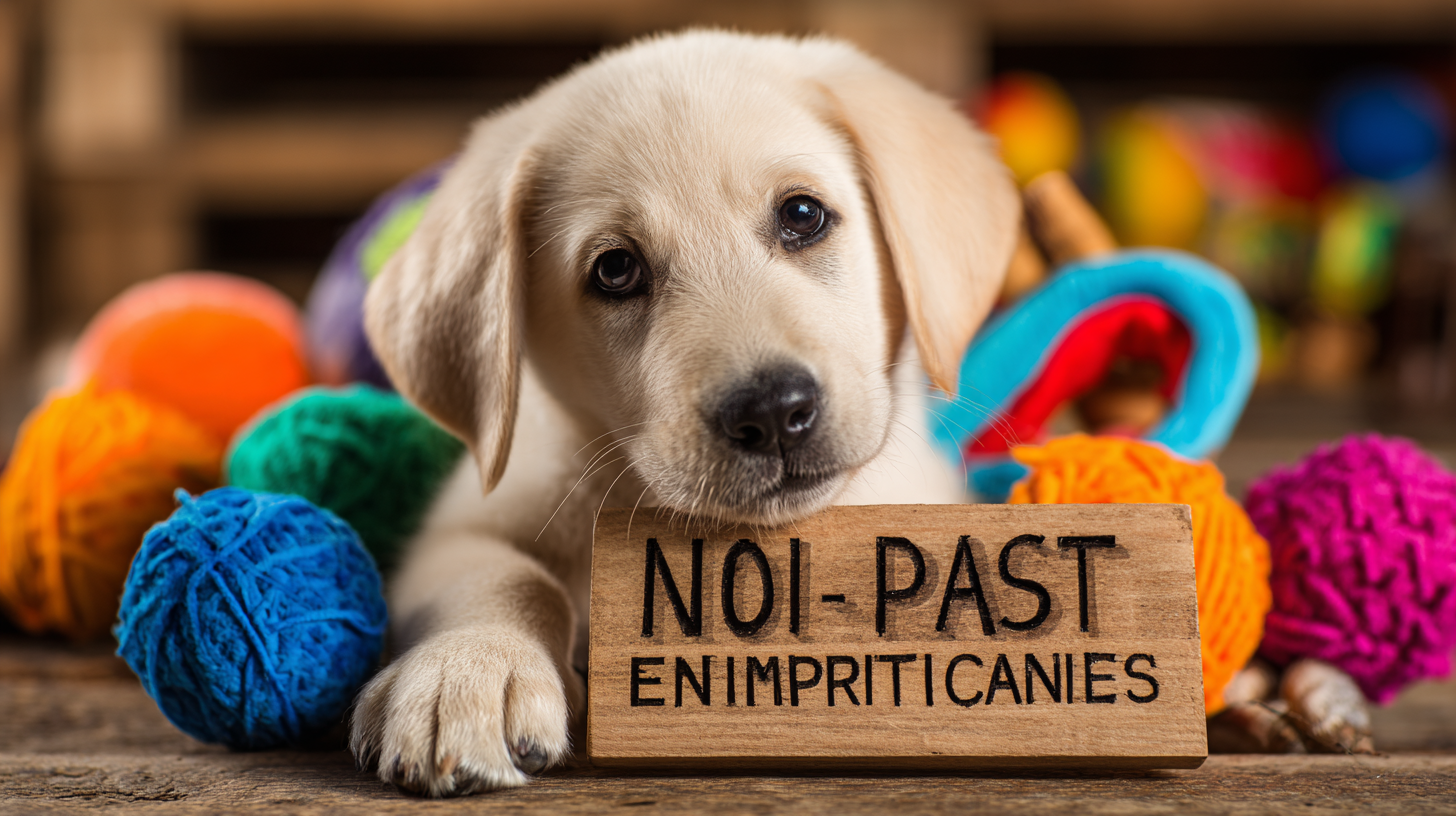You have no items in your shopping cart.

- Home /
- Blog
Navigating Import Export Certifications for Best Dog Toys a Complete Guide for Global Buyers
In the competitive world of pet products, selecting high-quality dog toys is essential for both consumer satisfaction and the well-being of our furry friends. As global buyers, understanding the import and export certifications that guarantee the safety and durability of dog toys can seem daunting. This complete guide aims to simplify the process by providing insights into how to choose reputable manufacturers and navigate the complexities of international trade. By focusing on crucial certifications and best practices, we will empower you to make informed decisions that ensure you are investing in the best dog toys available on the market.

Join us as we explore important considerations, from safety standards to ethical sourcing, ensuring your purchases contribute positively to both pets and their owners around the world.
Key Import Export Certifications for Dog Toys: A Comprehensive Overview
Navigating the world of import and export certifications for dog toys is crucial for global buyers aiming to meet safety and quality standards. According to a 2022 market report by Statista, the global pet toy market exceeded $2.5 billion in revenue, with a significant percentage attributed to safety-certified products. Certifications such as ASTM (American Society for Testing and Materials) and EN71 (European Standard for Safety of Toys) ensure that dog toys are free from harmful substances and designed to withstand rigorous play. Importers must familiarize themselves with these certifications to ensure compliance before introducing products to their respective markets.
In addition to safety standards, certifications like ISO 9001 (Quality Management Systems) add another layer of reassurance for buyers. A 2021 survey highlighted that 63% of pet product buyers prioritize quality certifications when making purchasing decisions. This growing emphasis on transparency and quality assurance in the pet supply chain signifies the importance of adhering to these certifications. For global buyers, understanding and obtaining the necessary import-export certifications is not just a regulatory step; it is a vital strategy to building trust and reliability with consumers in this competitive market.
Understanding Regional Compliance Standards for Dog Toy Safety
When it comes to importing and exporting dog toys, understanding regional compliance standards is crucial for ensuring safety and reliability. Different countries have varying regulations aimed at protecting consumers and their furry companions. For instance, the European Union mandates stringent testing and certification requirements under the EN71 toy safety directive, which emphasizes non-toxic materials and designs that prevent choking hazards. Similarly, in the United States, the Consumer Product Safety Improvement Act (CPSIA) sets forth guidelines regarding lead content and phthalates, ensuring that toys are safe for pets of all sizes.

Navigating these compliance standards is essential for global buyers looking to source high-quality dog toys. Before making any purchasing decisions, it is vital to familiarize oneself with the specific regulations in targeted markets. Working with certified manufacturers who understand these requirements can streamline the process. Moreover, engaging with local experts or trade organizations can provide insights into any upcoming changes in legislation, helping businesses stay ahead of the curve and ensuring that their products meet the necessary safety criteria. By prioritizing compliance, buyers can foster trust with consumers, encouraging responsible pet ownership worldwide.
Essential Documents Required for Global Dog Toy Shipping
When shipping dog toys globally, having the right certifications and documentation is crucial for compliance and smooth transit. Essential documents include the commercial invoice, which outlines the transaction details and value of the goods, and the certificate of origin, confirming where the products were manufactured. According to a recent industry report, 70% of pet owners prefer products that are certified safe, highlighting the importance of certifications such as those from recognized safety standards organizations.

In addition to these documents, import/export licenses may be required depending on the destination country's regulations. Furthermore, companies should also ensure that their products meet the specific import standards for pet toys, which can vary significantly by region. For instance, an analysis from the Pet Industry Federation indicates that North America and Europe have the strictest safety regulations, emphasizing non-toxic materials and durability. As global demand for safe and high-quality dog toys rises, understanding these certification requirements not only facilitates a hassle-free shipping process but also boosts a brand's credibility in the competitive pet product market.
Tips for Selecting Certified Dog Toy Manufacturers Worldwide
When it comes to purchasing certified dog toys, selecting the right manufacturer is crucial. Global buyers should consider a few key aspects to ensure that they are collaborating with reputable companies. One of the first tips is to verify the certifications of the manufacturers. Look for toys that meet recognized safety standards, such as ASTM, EN71, or ISO certifications. These certifications indicate that the products have passed rigorous testing for safety and quality, offering peace of mind for both you and your furry customers.
Another important factor is to assess the manufacturer's production process and sourcing materials. Opt for companies that prioritize eco-friendly practices and use non-toxic materials in their toys. This not only contributes to the safety of the pets but also promotes sustainability. Furthermore, inquire about their quality control measures. A reliable manufacturer should have a clear and robust quality assurance process in place to guarantee that each product meets the highest standards before it reaches consumers. By focusing on these tips, you'll be well-equipped to choose the best certified dog toy manufacturers worldwide.
Navigating Import Export Certifications for Best Dog Toys
This bar chart represents the various certification types for dog toys across different countries, showcasing the importance of selecting certified manufacturers globally.
How to Verify and Validate Certifications for Dog Toys
When purchasing dog toys from global suppliers, verifying and validating certifications is crucial for ensuring product safety and quality. Start by requesting documentation that demonstrates compliance with relevant safety standards. Look for certifications such as ASTM or EN71, which indicate that the toys have undergone rigorous testing. Make sure the supplier can provide a copy of their certifications, as this not only reflects their commitment to quality but also protects your business from liability.
Tips: Always check the validity period of certifications. Some certifications may have expiration dates, and outdated documents could compromise product safety. Additionally, consider contacting testing laboratories directly to confirm the authenticity of the supplier's claims. This extra layer of verification adds peace of mind that the toys are safe and suitable for your canine customers.
Another critical step is to research the certifying bodies. Renowned organizations often maintain strict standards, so familiarizing yourself with these will help you evaluate the reliability of the certifications presented. Don't hesitate to reach out to the certifying organization if you have doubts; they can provide clarity and assurance regarding the legitimacy of the certifications offered by your potential suppliers.
